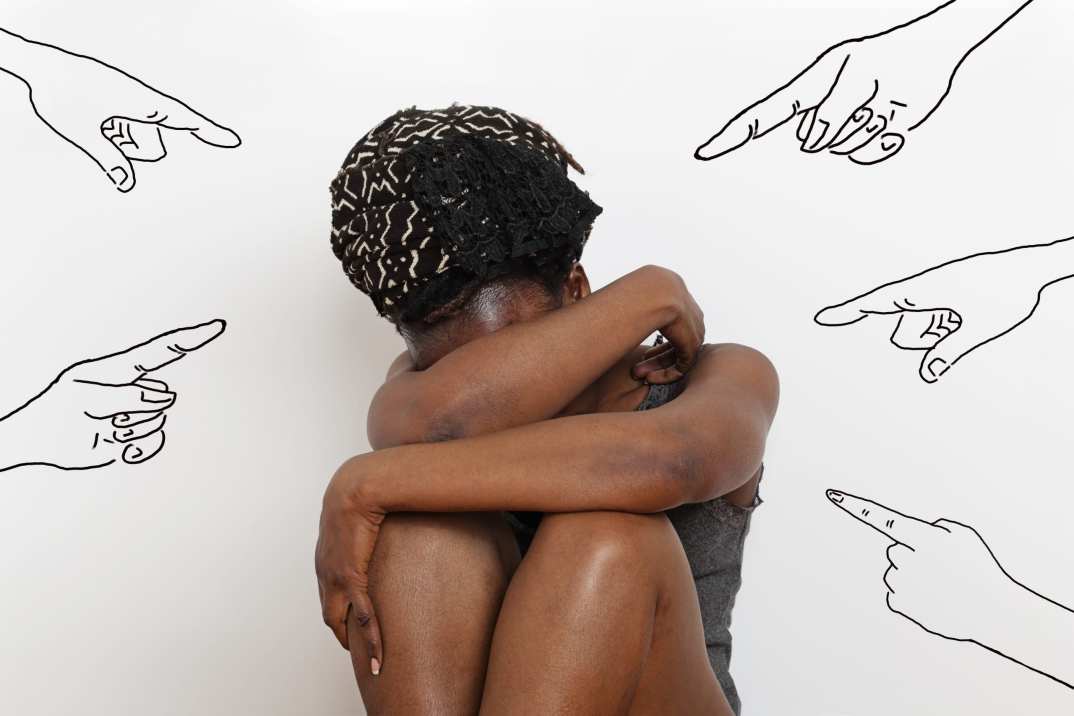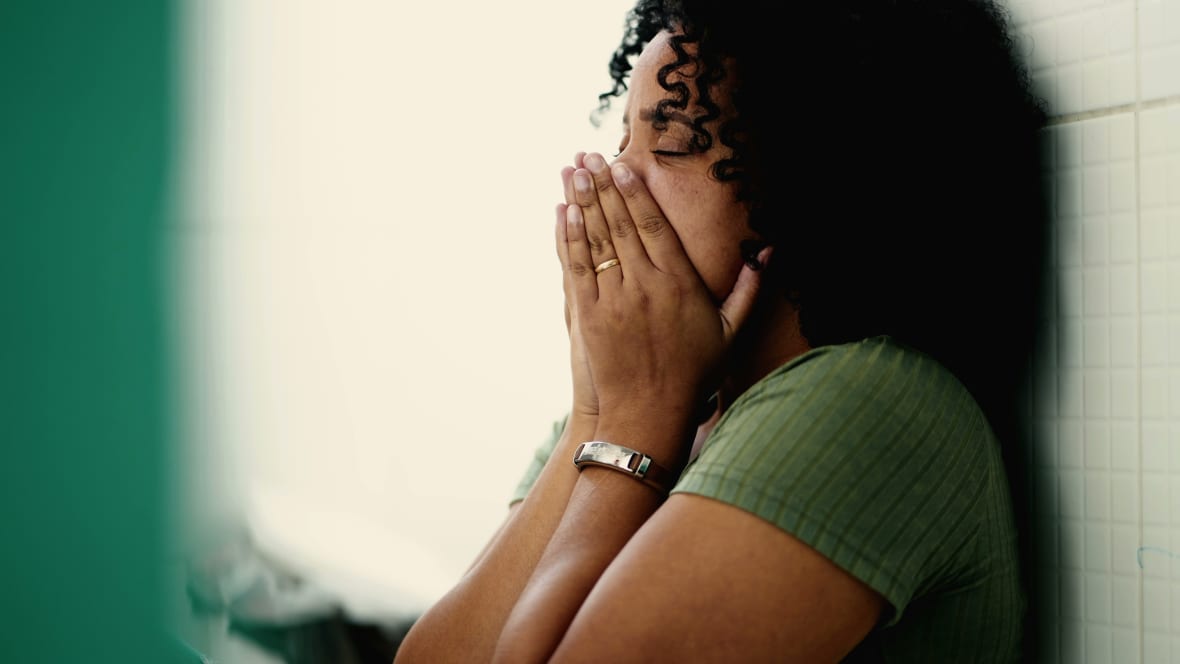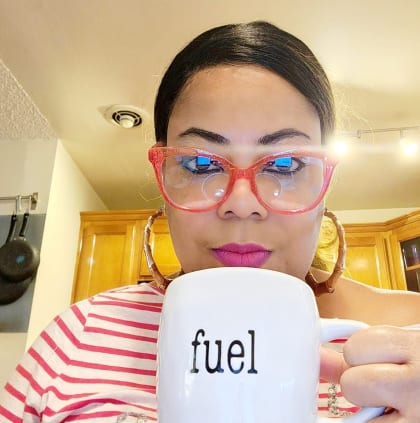Black women get shamed for everything
OPINION: Whether it's fatphobia or slut shaming, Black women are not allowed to love their bodies as they are, and they are most definitely not allowed to love them out loud.

Editor’s note: The following article is an op-ed, and the views expressed are the author’s own. Read more opinions on theGrio.
The other day, I was thinking about how hard it is for Black women to fully exist in our lived experience without being shamed at every step along the way.
It’s not a shame we put on ourselves; it is heaped on us by others.
Before the whining starts, I want to be clear that I realize all women are shamed for the tiniest of things that shouldn’t even matter or be anyone else’s business, but as Black women, we are held under a microscope and have every decision, emotion, hairstyle, financial status, education level, number of previous lovers — you name it, we have had it picked apart and thrown in our faces at any given moment.
And it’s not just men that do it to us.
Plenty of women join in on the often patriarchal pile-ons that women who dare to live as their full and unapologetic selves frequently experience. Patriarchy is often assisted by women who have lived some of the same experiences as other women but consider themselves “different.”
Newsflash: We aren’t so different, and the moment we stop weaponizing these tools against each other we will be better off as a collective.
Whether that happens or not, shame will always be there because there’s nothing humans like more than feeling superior — morally or otherwise — to another human being. Some feel at their best when they are wagging their finger in the face of someone else.
I have already written about the undue burden of higher expectations that is put on Black women.
It’s so much deeper than that. Shame is the means many people use to try to “humble” Black women. I wrote about the “humbling” in that same piece.
If humbling Black women is the end, shame is very often the means.
Body shaming and fatphobia
Have you ever noticed how Black women who feel most comfortable in their own bodies are the ones to get body-shamed the most?
Think about Lizzo. She’s a beautiful, full-figured woman, and she’s comfortable in her own skin, which results in her receiving a lot of harassment and abuse.
Think about the way people came for Halle Berry — a beautiful Black woman who is considered the ideal by a great many — after she posted a picture of herself sipping wine on her balcony in the nude.
You couldn’t see any part of her body other than her limbs, but people lost their collective minds. She was shamed for posting the picture, and there were even some who tried to age-shame her.
Halle is a grown woman. She can post whatever she wants just like Lizzo can wear whatever she wants.
And although women of all sizes experience body shaming, a lot of fatphobic abuse is heaped on Black women.

I note this because once fatphobia enters the chat, it links up with other types of shaming Black women receive, and the abuse is compounded.
It doesn’t matter how much “fat” a Black woman actually has either; anyone who doesn’t resemble a stitched-together Instagram model is “fat,” and it is included in whatever other version of shaming they are going to be attacked with.
If you actually love yourself in your own skin, the fat phobia is worse because the abuser then wants to shame you for not hating yourself.
Black women are not allowed to love their bodies as they are, and they are most definitely not allowed to love them out loud.
We are supposed to hate ourselves for not conforming to some standard that was never meant to fit us in the first place.
Black women are not allowed to have a sexual past.
We have all heard of the “Madonna-Whore complex” in which cisgender men are unable to see the difference between the love they have for their romantic partners from the love they have for their mothers. As they see their mothers as “pure,” they want to view their partners as pure as well.
Even if men have sexual fantasies that extend beyond what the mainstream would consider “normal” (and “normal” is doing a lot right there, trust), those acts are things they can only engage in with women who are not their romantic partners.
In fact, they tend to devalue the type of women who do those acts at the same time they are doing those things with those women.
It’s weird for sure, and that’s not even getting into the special category of men who expect their partners to both have an extensive amount of experience and knowledge in the bedroom but also have been touched by no other person ever in the history of ever.
It’s a weird contradiction, and it doesn’t work no matter how they try to twist it up.
This leads to the shaming of women who are not ashamed of their sexual histories and who are also open about their sexual histories. They are “whores” and “used up” and whatever other disrespectful phrase you can think of.
And that shaming does not just come from men. As I said earlier, patriarchy gets a lift from a lot of women who spend an inordinate amount of time looking down their noses at women who make different choices than they do.
We are not allowed the bodily autonomy to decide who we want to be with, how many times, and what things we want to do with them. We are supposed to let society dictate that to us.
We aren’t supposed to acknowledge what we want.
We aren’t even supposed to have those desires.
Black women aren’t allowed to feel their past traumas
Josie Pickens, a beautiful and brilliant Black woman who always seems to be channeling what we are all thinking and experiencing, wrote recently:
Chile, somebody tryna get my lil’ heart to come out of hiding, and I’m over here blushing, showing all my teeth, and two seconds away from blocking them on ALL my devices.
We should talk more about all the fear and anxiety that can be involved in opening oneself up to connection after experiencing heartbreak and doing deep healing work.
You wanna give folks that talk Black mamas offer their babies before going into the “sto.”
“Listen, when we go in here don’t touch nothing, don’t ask for nothing, if you break something I’m gon’ break yo’ a**. ACT LIKE YOU WAS RAISED.”
I felt so seen reading those words.
It’s not that women are afraid to open up; it’s just that we don’t want to get cut in the same places again.
After I read what she wrote, I started thinking about the way Black women are shamed for knowing and naming their trauma; the way Black women are shamed for talking about the trauma they carry from past negative experiences; and the way Black women are demonized for calling things exactly what they are.
We are shamed for having “baggage.”
And to be clear, we have baggage. We have a lot of baggage, and some of us haven’t unpacked from the last trip we went on before we embark on the next one.
It’s a thing that needs some working on.
That doesn’t, however, invalidate the experience, and shouldn’t be the reason a woman feels like she can’t share her story.
Can we have an honest discussion about some of the “trips” we’ve been on? Our adventures are how we got here, and the bags we bring back from those trips are full of the souvenirs given to us by those who have hurt us.
Storytelling is a revolutionary act.
It liberates our souls and delivers us of our burdens. It’s both healthy and necessary.
But if you talk about it too loudly, you get labeled and shamed. Again.

White people made everything about race
Because there is nothing more shameful, in their eyes than a Black woman who walks tall in her truth.
How dare you?
I could go on, but I think everyone gets the point here.
Black women live daily with shaming for every little thing they do.
It’s as if just by breathing and existing, we are disrupting somebody’s matrix.
That’s OK.
Live your life the way you want to. You are both the writer and the main character in your story, and no one knows you better than you.
Know that they are going to try and shame you.
They cannot take your truth from you.

Monique Judge is a storyteller, content creator and writer living in Los Angeles. She is a word nerd who is a fan of the Oxford comma, spends way too much time on Twitter, and has more graphic t-shirts than you. Follow her on Twitter @thejournalista or check her out at moniquejudge.com.
TheGrio is FREE on your TV via Apple TV, Amazon Fire, Roku, and Android TV. Please download theGrio mobile apps today!

